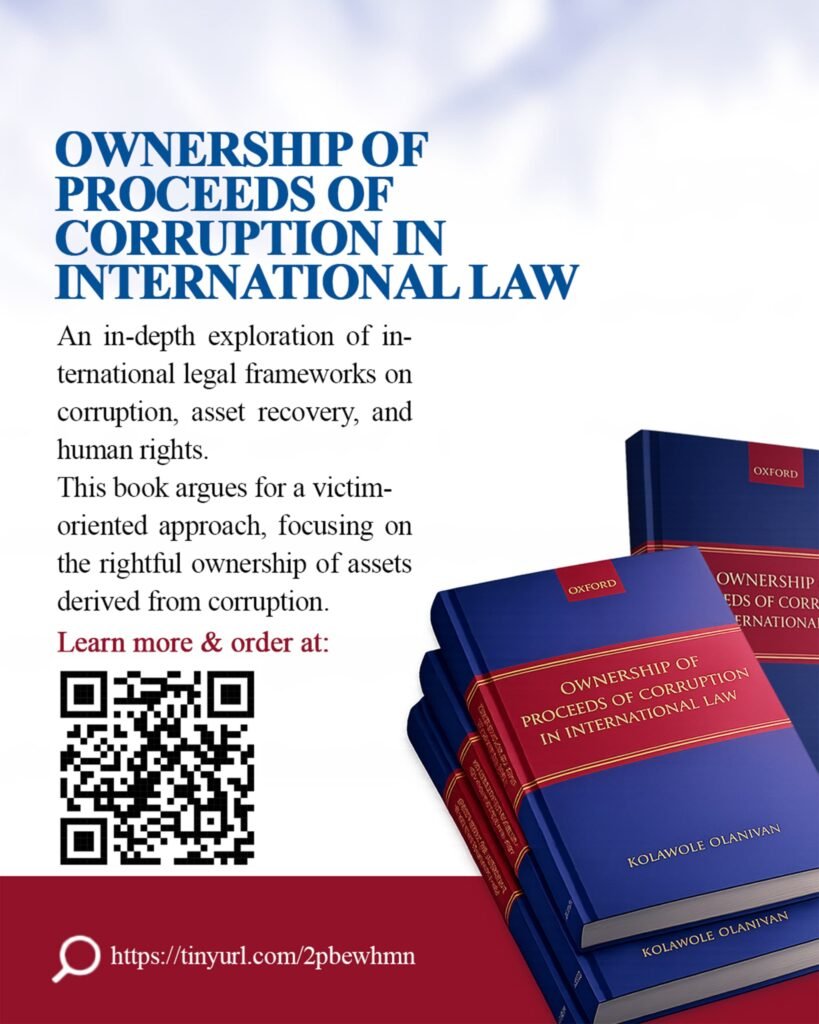
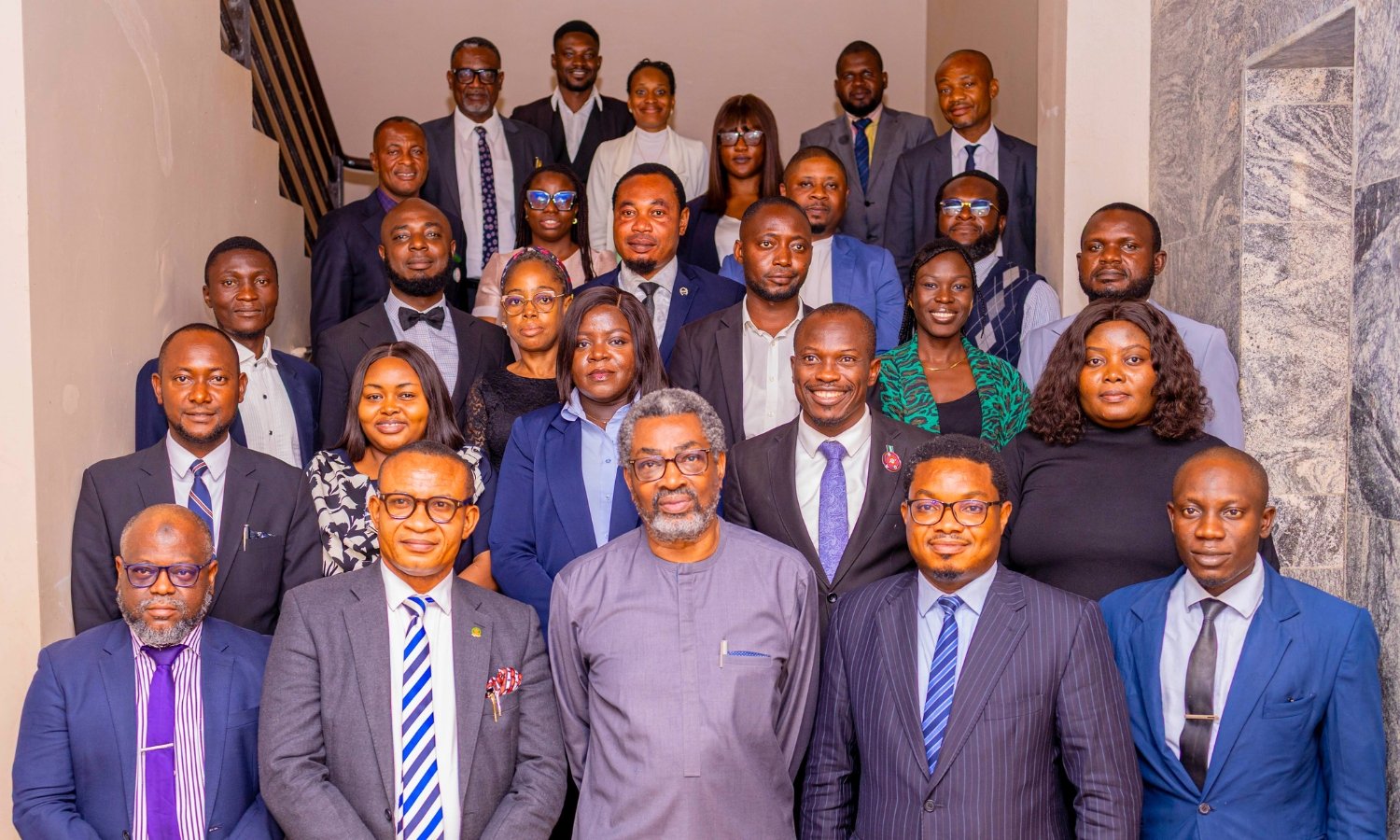
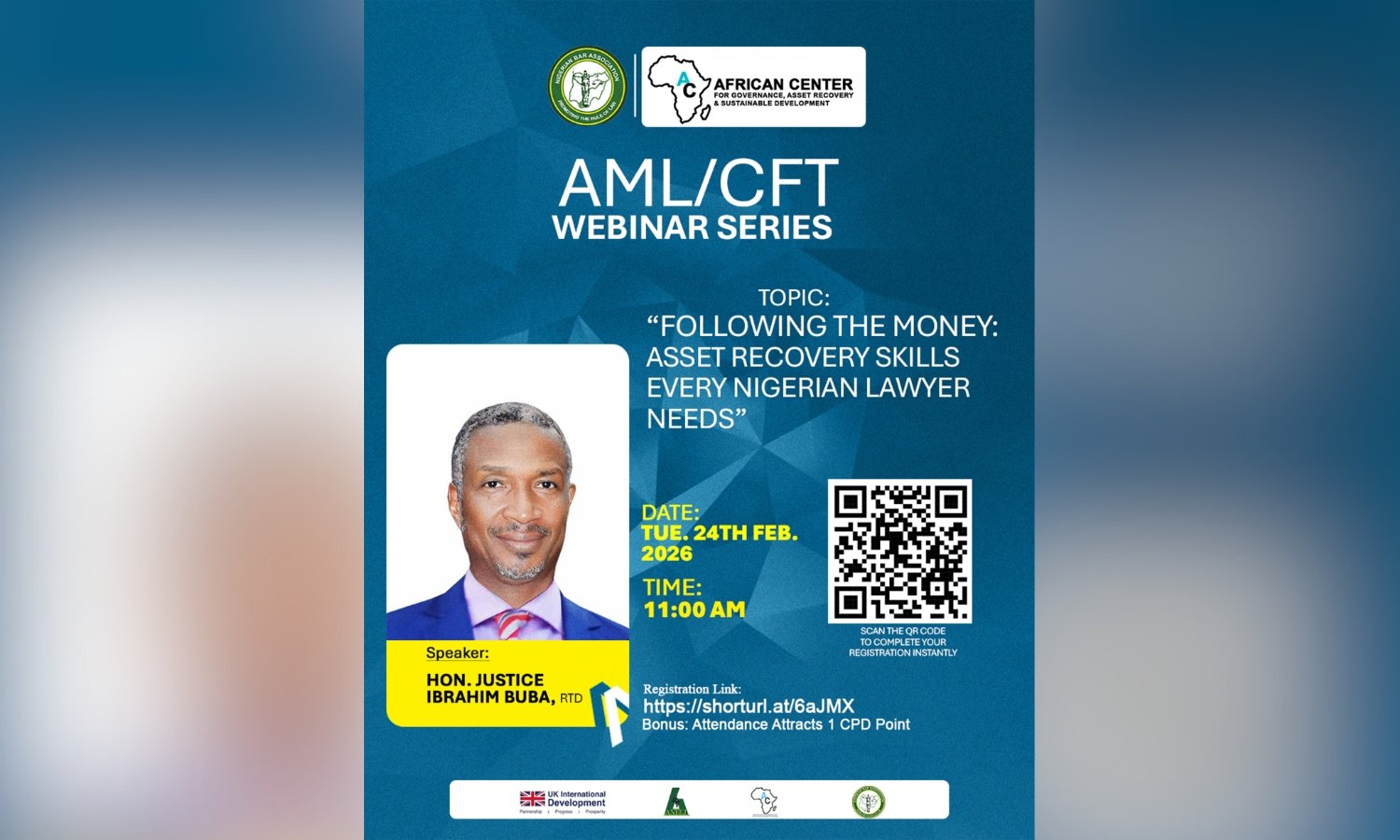
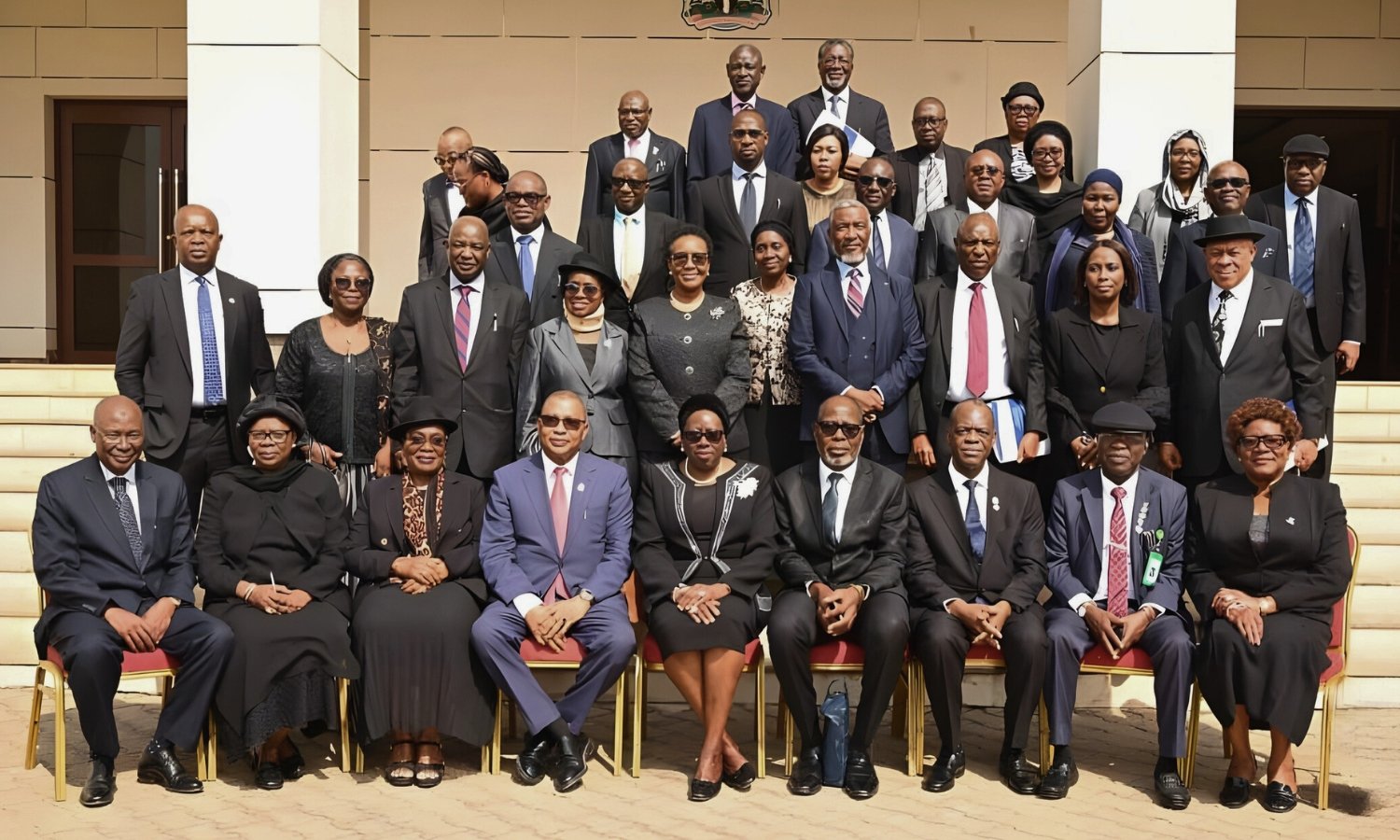
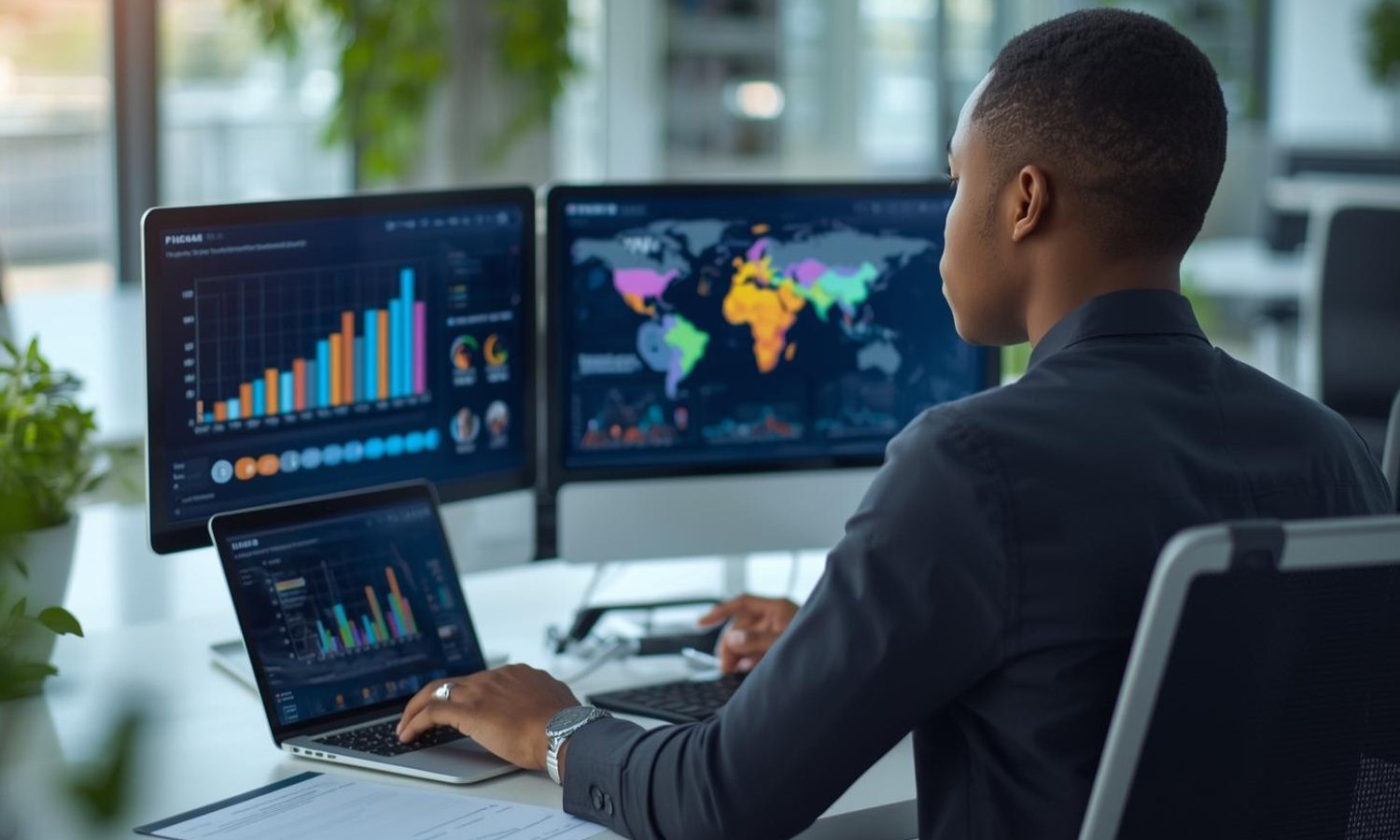
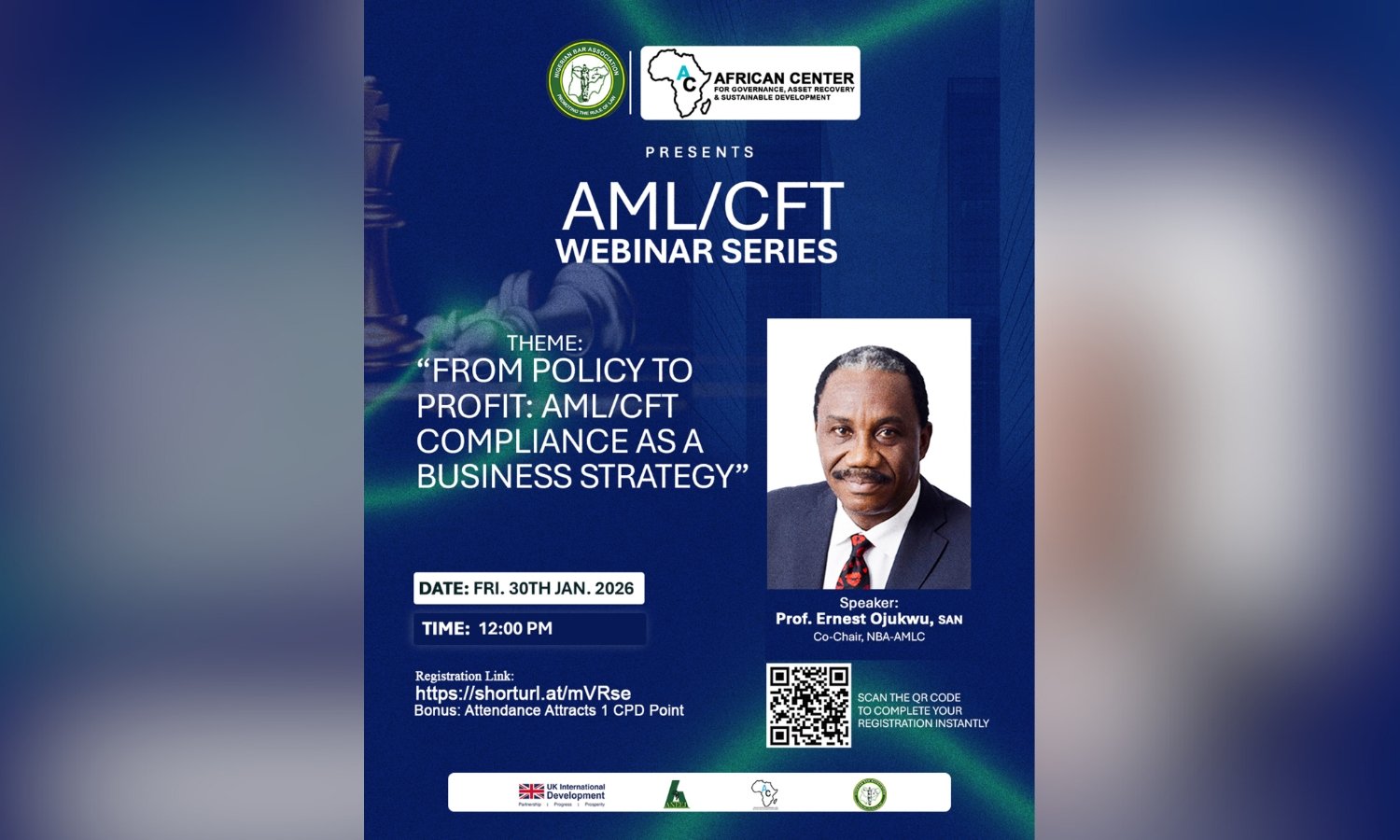
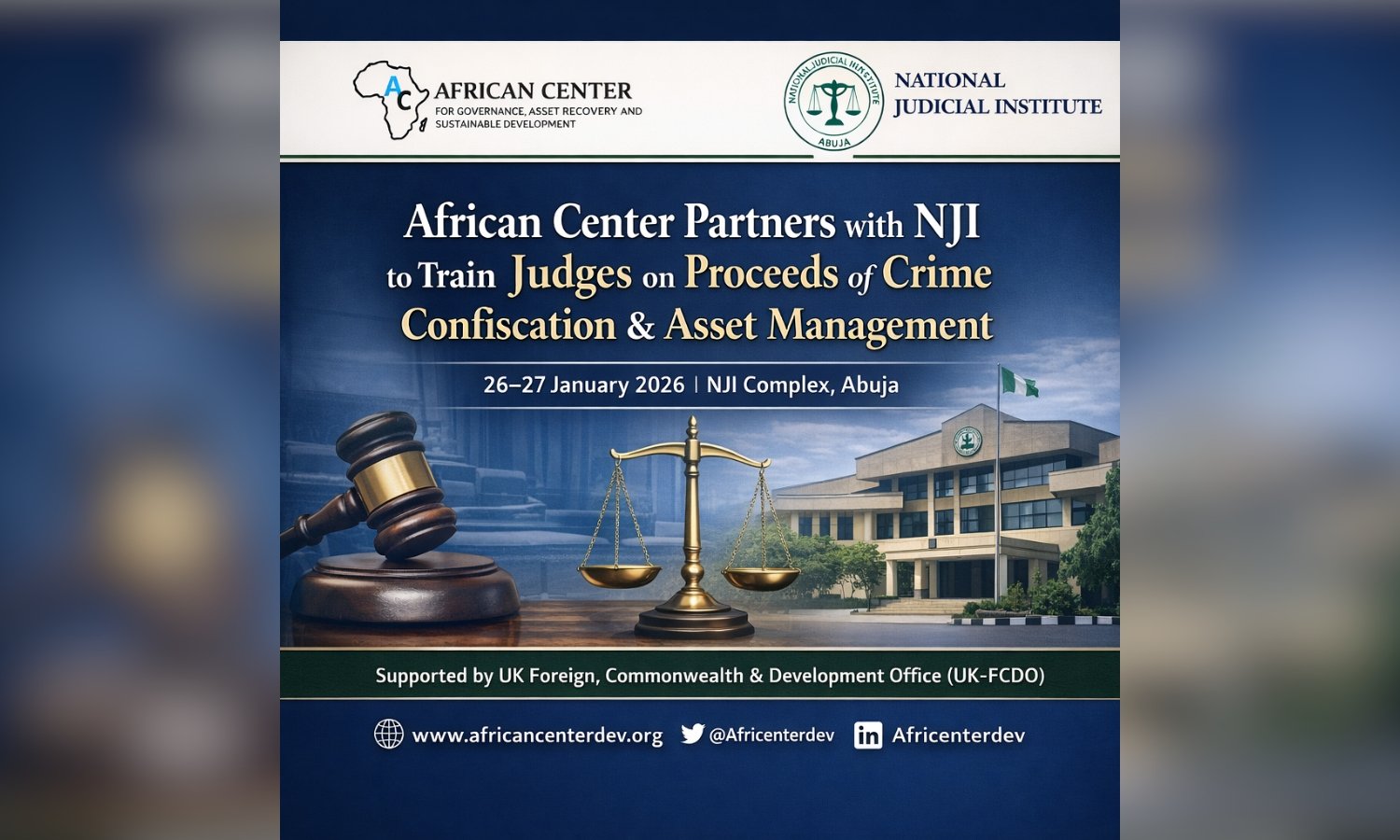
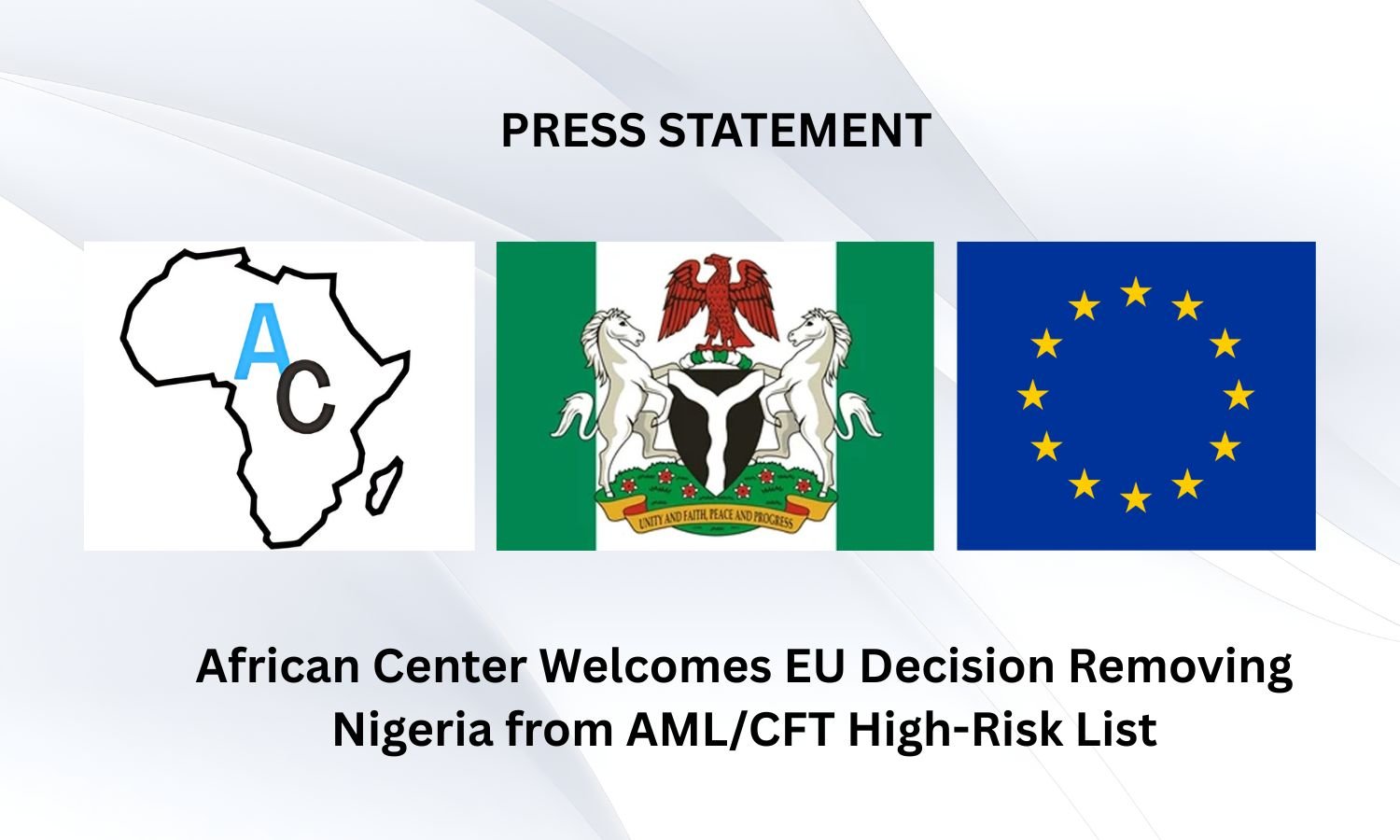
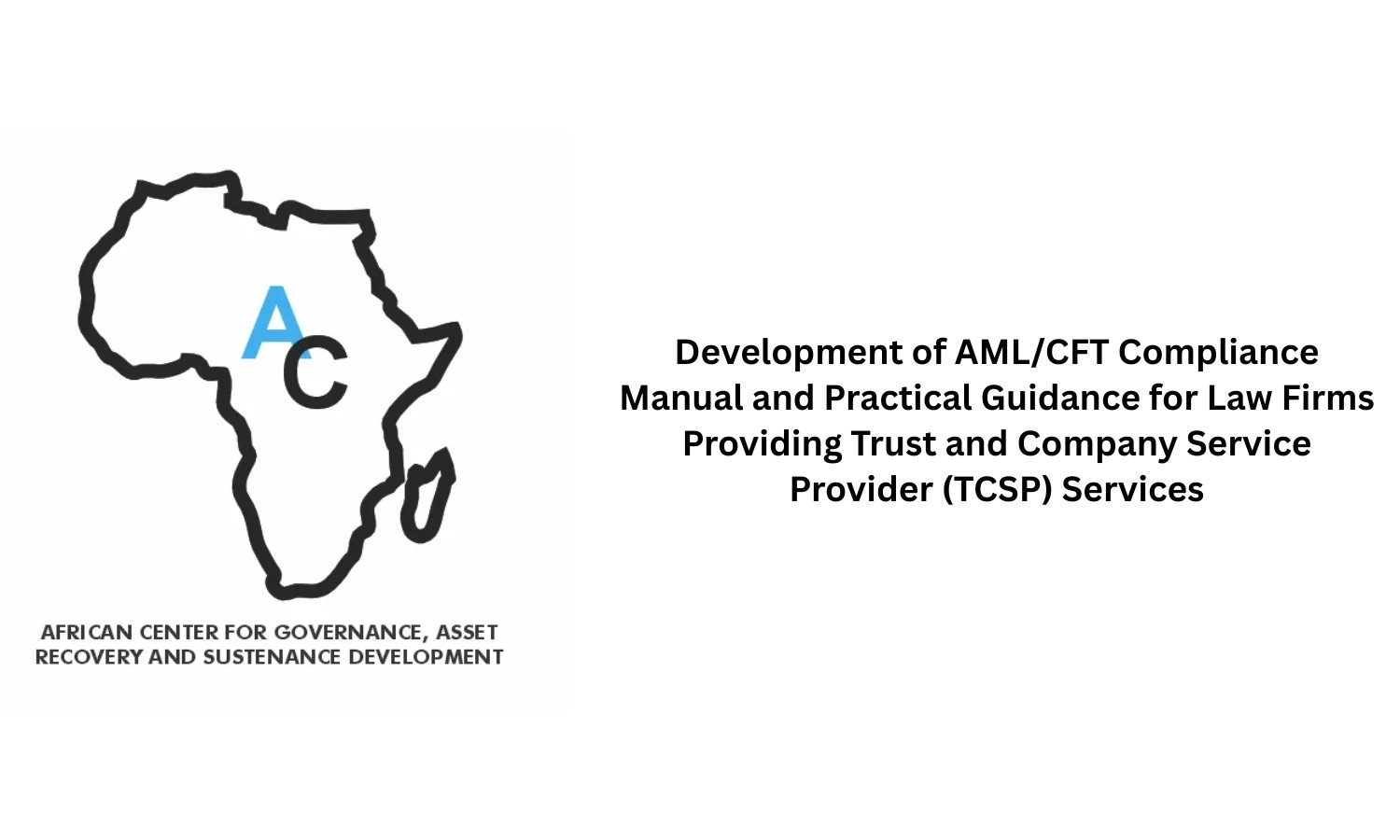
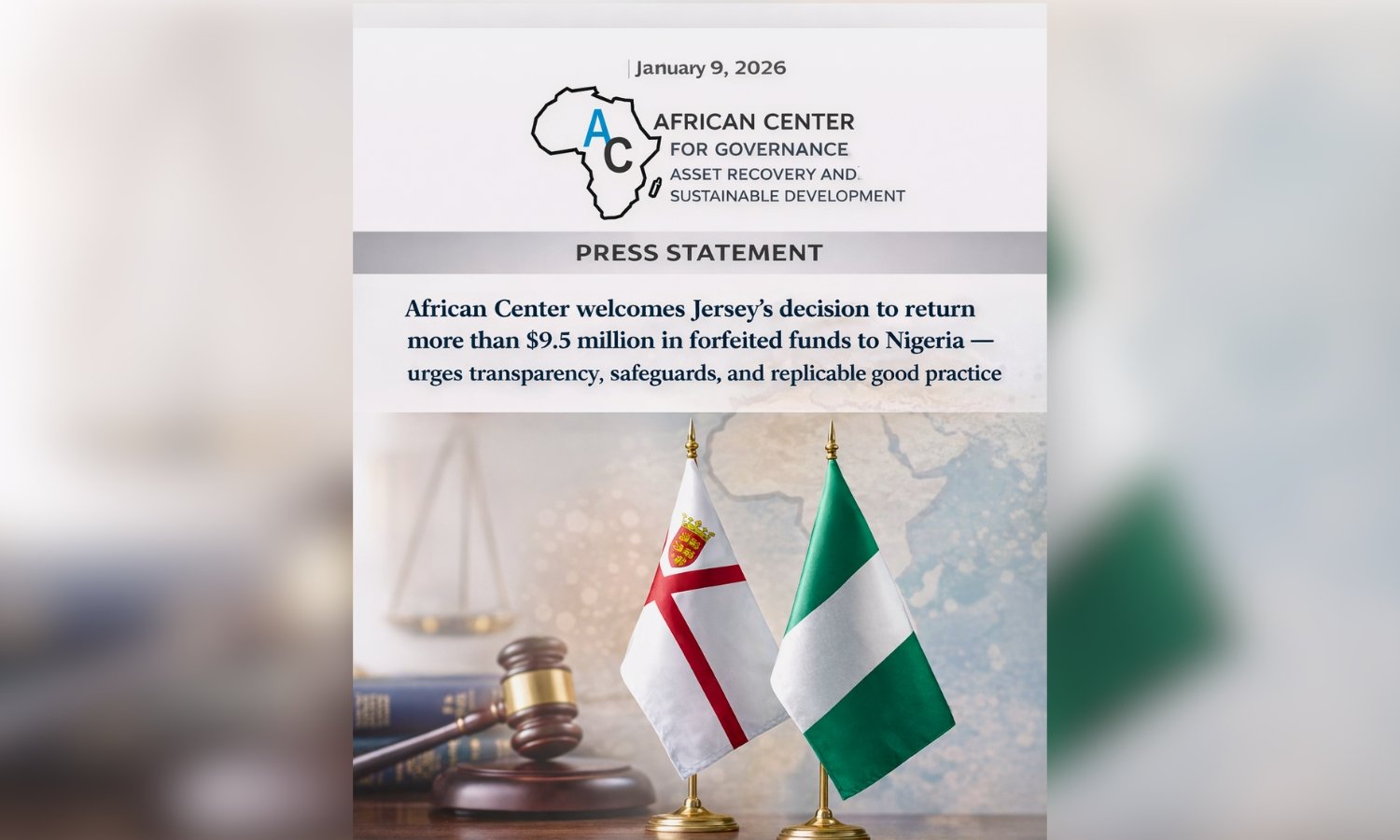
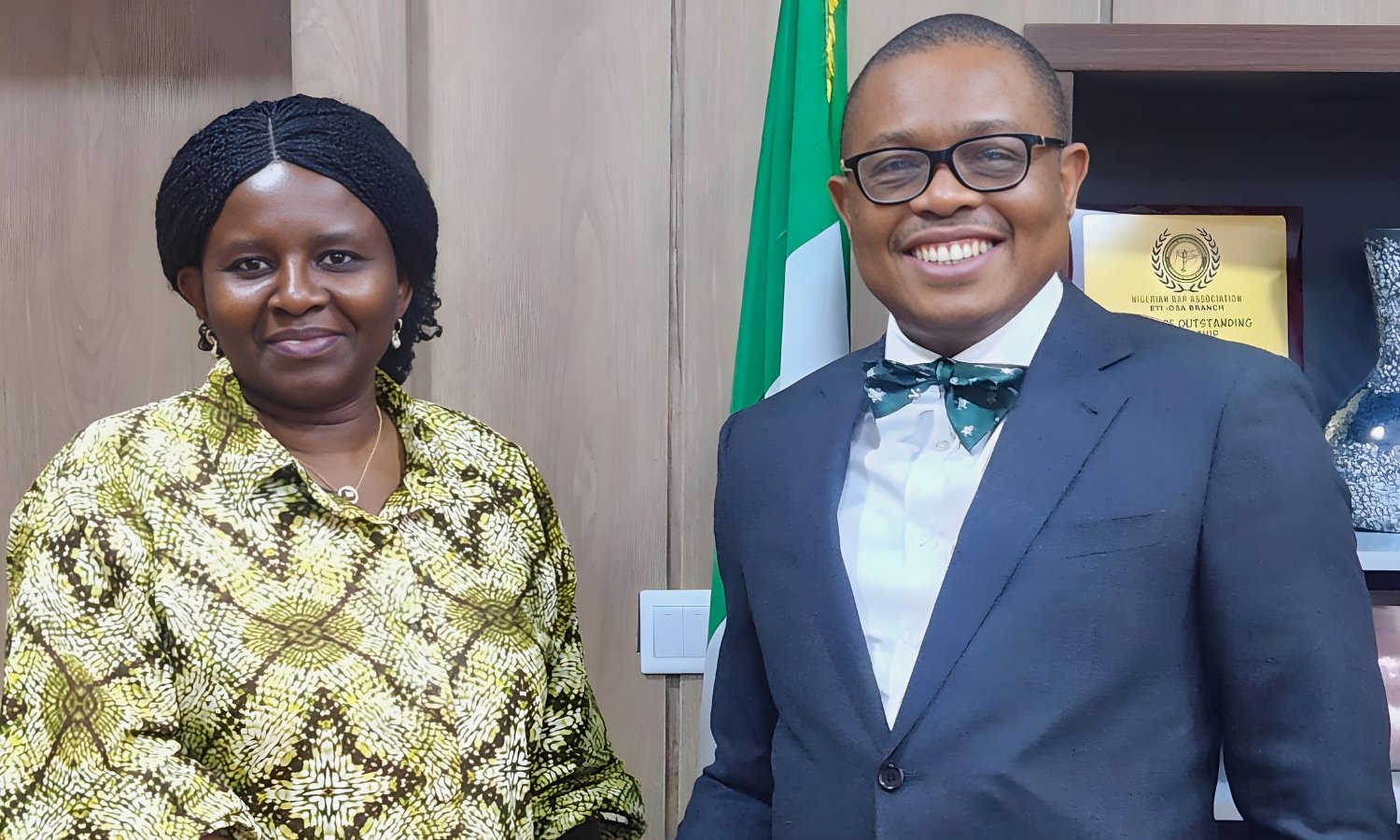
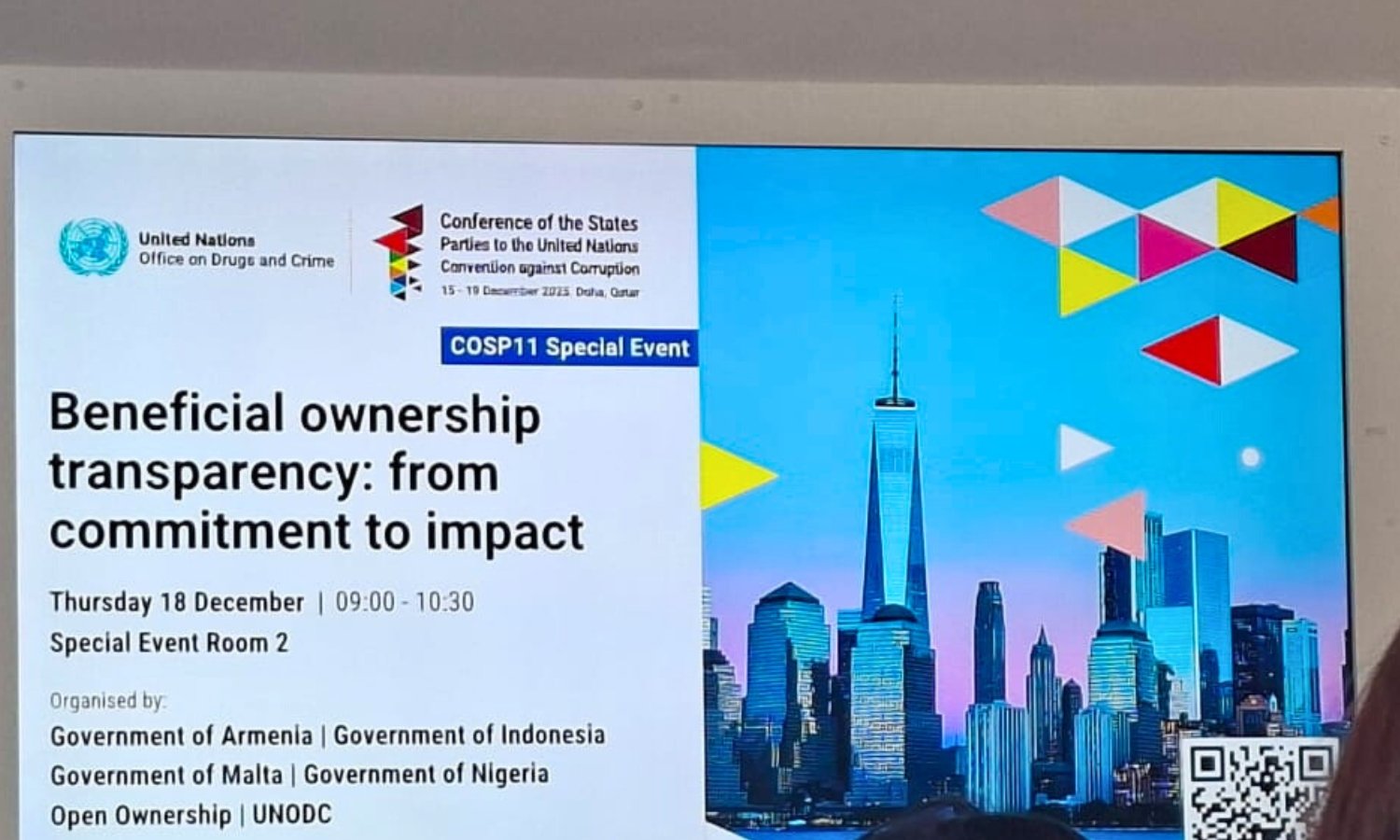
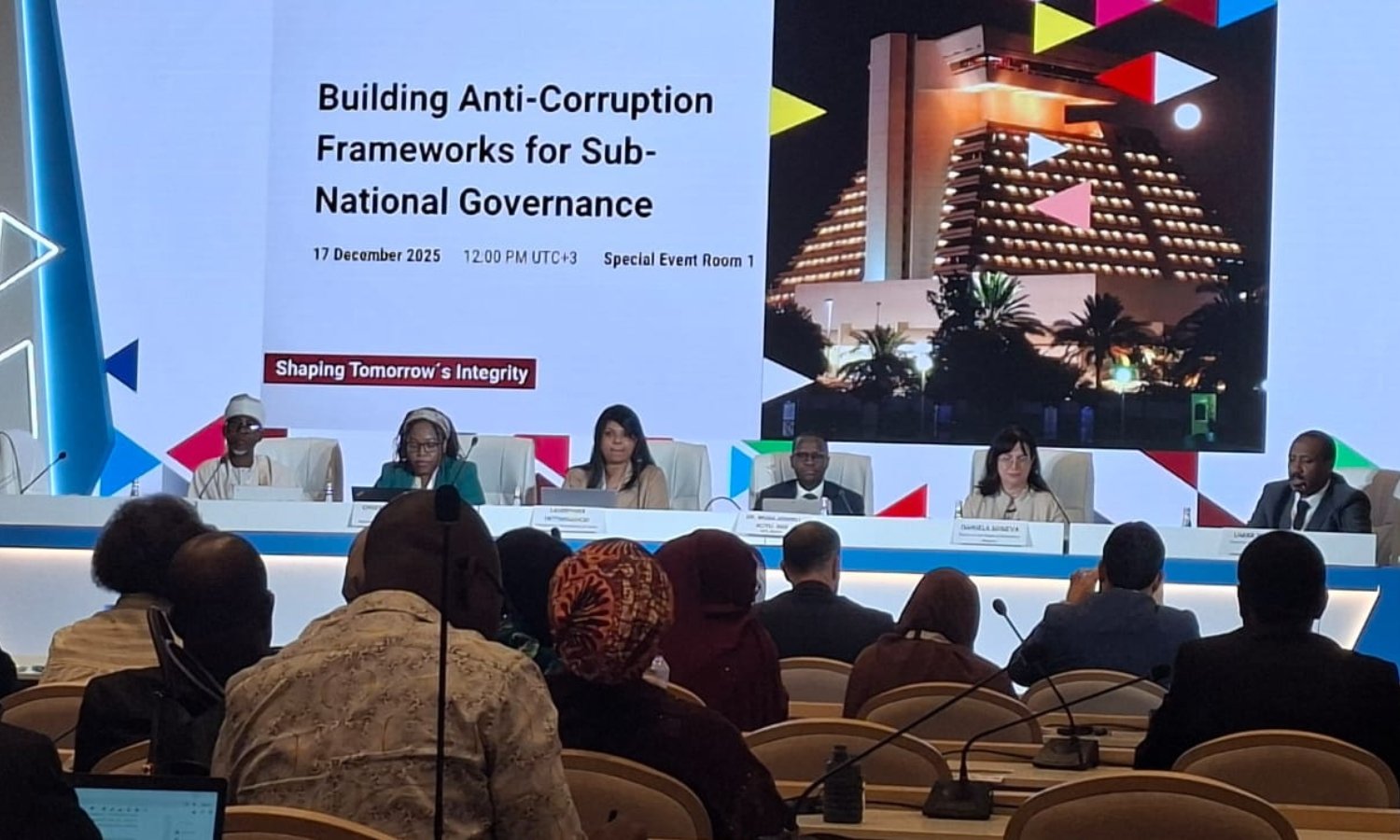

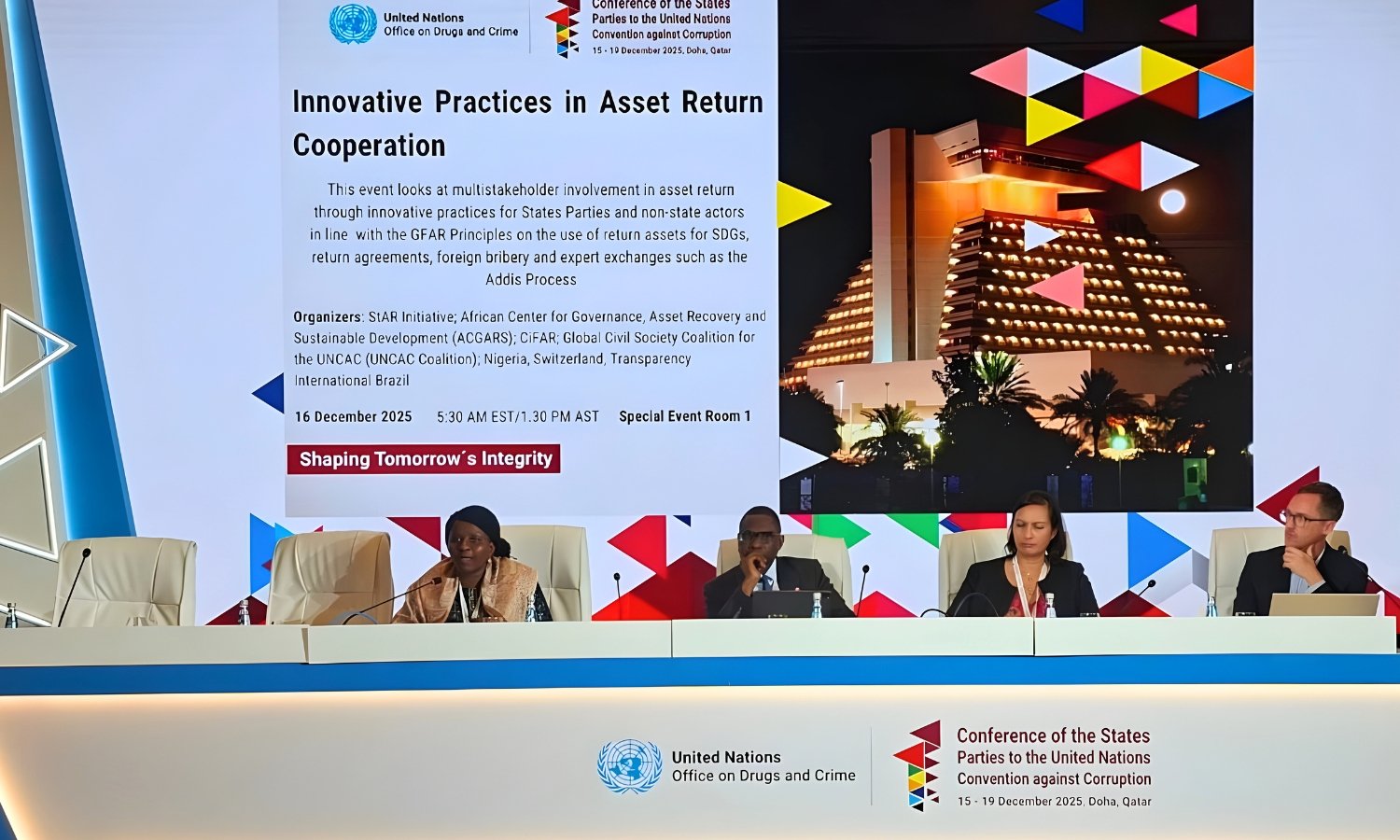
African Center and NBA-AMLC Train Lawyers on AML Compliance and the Use of the STR Portal The African Center for Governance, Asset Recovery and Sustainable Development, in collaboration with the Nigerian Bar Association Anti-Money Laundering Committee (NBA AMLC), successfully convened a one-day Training of Trainers (ToT) workshop for selected NBA branch representatives on Tuesday, 24 February 2026, at NBA House, Abuja. The workshop was designed to strengthen Anti-Money Laundering and Counter-Financing of Terrorism (AML/CFT) compliance within the legal profession by equipping participants with the knowledge and practical tools required to serve as compliance trainers in their respective branches. Strengthening Compliance […]
As illicit financial flows grow more sophisticated, legal practitioners must strengthen their capacity to trace assets, navigate complex frameworks, and manage cross-border recovery. To advance this conversation, the Nigerian Bar Association Anti-Money Laundering Committee, in partnership with the African Center for Governance, Asset Recovery and Sustainable Development, invites you to the next Monthly AML/CFT Webinar Series: “Following the Money: Asset Recovery Skills Every Nigerian Lawyer Needs” The session will unpack practical asset tracing techniques, key provisions of the Proceeds of Crime Act 2022, and real-world recovery and ethical considerations. � Speaker: Hon. Justice Ibrahim Buba (Rtd)� Date: Tuesday, 24 February […]
The Chief Justice of Nigeria (CJN), Justice Kudirat M. O. Kekere-Ekun, has urged judicial officers to ensure the effective and principled implementation of the Proceeds of Crime (Recovery and Management) Act (POCA) 2022, as a two-day high-level judicial training on asset confiscation and management concluded in Abuja. The training, held from 26–27 January 2026 at the National Judicial Institute (NJI) and convened by the African Center for Governance, Asset Recovery and Sustainable Development in partnership with the NJI, and the Federal Ministry of Justice brought together the leadership of the courts including chief judges and more than forty (40) judgees […]
The African Center for Governance, Asset Recovery and Sustainable Development is looking for a detail-oriented Monitoring and Evaluation (M&E) Assistant to join our team in Abuja. In this role, you will play a vital part in our mission to strengthen transparency across Africa by supporting data collection, analyzing program performance, and documenting success stories that drive evidence-based decision-making. If you have 1–2 years of experience in M&E, a background in social sciences or statistics, and a passion for governance and sustainable development, we want to hear from you! You’ll work closely with our MEL Officer to ensure our projects deliver […]
The Nigerian Bar Association Anti-Money Laundering Committee (NBA-AMLC), in collaboration with the African Center for Governance, Asset Recovery and Sustainable Development, will host its Monthly AML/CFT Webinar focused on reframing compliance as a strategic business tool. The webinar, titled From Policy to Profit: AML/CFT Compliance as a Business Strategy, will examine how effective AML/CFT frameworks can move beyond regulatory compliance to enhance institutional credibility, risk management, and long-term profitability for law firms and businesses. The session will be delivered by Professor Ernest Ojukwu, Co-Chair of the Nigerian Bar Association Anti Money Laundering Committee (NBA-AMLC), a leading authority on anti-money laundering, […]
Abuja 22 January 2026 As Nigeria intensifies efforts to combat illicit financial flows and strengthen the integrity of its asset recovery framework, the role of the judiciary has become increasingly central to the effective implementation of the Proceeds of Crime (Recovery and Management) Act, 2022 (POCA). In response to this evolving legal and institutional landscape, the African Center for Governance, Asset Recovery and Sustainable Development, in collaboration with the National Judicial Institute (NJI), the Federal Ministry of Justice (FMOJ), and the African Network for Environment and Economic Justice (ANEEJ), is set to convene a high-level judicial training titled: “Training for […]
The African Center for Governance, Asset Recovery and Sustainable Development warmly welcomes the European Commission’s decision to remove Nigeria from the European Union’s list of high-risk third countries for Anti-Money Laundering and Countering the Financing of Terrorism (AML/CFT). This landmark decision, formalized through a new European Commission regulation taking effect from 29 January 2026, follows Nigeria’s earlier removal from the Financial Action Task Force (FATF) grey list in October 2025 after the successful completion of its FATF Action Plan. Together, these developments represent a significant international endorsement of Nigeria’s sustained commitment to strengthening the integrity, transparency, and resilience of its […]
The African Center for Governance, Asset Recovery and Sustainable Development (African Center) is seeking a qualified consultant to lead a critical initiative in Nigeria’s legal and financial sectors. This Request for Proposals (RFP) focuses on developing a specialized AML/CFT Compliance Manual and Practical Guidance for law firms operating as Trust and Company Service Providers (TCSPs). Why This Initiative Matters In Nigeria, law firms providing TCSP services are classified as Designated Non-Financial Businesses and Professions (DNFBPs). While these firms provide essential corporate services, they are vulnerable to exploitation for money laundering and terrorism financing. Recent risk assessments have highlighted a significant […]
The African Center for Governance, Asset Recovery and Sustainable Development has welcomed the decision by the Bailiwick of Jersey to return over $9.5 million in recovered proceeds of corruption to the Federal Republic of Nigeria, describing the development as a significant milestone in international cooperation against illicit financial flows and cross-border corruption. The Center commends the authorities of Jersey and the Government of Nigeria for the successful conclusion of this asset return process, which reflects the growing effectiveness of civil forfeiture regimes and mutual legal assistance frameworks in tracing, confiscating, and repatriating stolen public funds. The Center noted that asset […]
As part of its ongoing advocacy and stakeholder engagement, the Executive Director of the African Center for Governance, Asset Recovery and Sustainable Development, Madam Juliet Ibekaku-Nwagwu, paid an advocacy visit to the President of the Nigerian Bar Association (NBA), Chief Afam Osigwe, SAN, to discuss the strengthening of ongoing anti-money laundering (AML) initiatives currently supported under the UK Foreign, Commonwealth and Development Office (FCDO)-funded project. Focus on Sustainability and Continuity The meeting reviewed the progress of joint interventions implemented in 2025, particularly in collaboration with the NBA Anti-Money Laundering Committee (NBA-AMLC). These included monthly AML/CFT webinars for legal practitioners, capacity-building […]
The African Center for Governance, Asset Recovery and Sustainable Development today participated in and concluded an impactful side event at the 11th Conference of the States Parties to the United Nations Convention against Corruption (CoSP11), focused on advancing beneficial ownership transparency from commitment to measurable impact. Held at the Sheraton Hotel in Doha, the session brought together representatives of the United Kingdom Government, the Government of South Africa, and the Government of Nigeria to exchange experiences, reforms, and practical tools for strengthening corporate ownership transparency and combating illicit financial flows. A central feature of the session was a detailed presentation […]
The African Center for Governance, Asset Recovery and Sustainable Development, on Wednesday, participated in a high-level side event at the 11th Conference of the States Parties to the United Nations Convention against Corruption (CoSP11), focusing on strengthening anti-corruption frameworks at the sub-national level. The side event, titled “Building Anti-Corruption Frameworks for Sub-national Governance,” was held at the Sheraton Hotel, Doha, and brought together policymakers, analysts, and civil society leaders to examine how national anti-corruption commitments can be effectively translated into impact at state and local government levels. The panel featured Dr. Musa Adamu Aliyu, SAN, Chairman of Nigeria’s Independent Corrupt […]
The Victims of Corruption Working Group (VoC WG) convened a strategic side meeting on 15 December 2025 in Doha, Qatar, on the margins of the Eleventh Session of the Conference of the States Parties (CoSP11) to the United Nations Convention against Corruption (UNCAC). The meeting was chaired by Juliet Ibekaku-Nwagwu, Executive Director of the African Center for Governance, Asset Recovery and Sustainable Development, and Chair of the VoC WG, with support from Ms. Ruth Quinn of the Global Survivors Fund and Ms. Bettina Pasteknik of the Global Civil Society Coalition for the UNCAC. The session brought together Working Group members […]
Madam Juliet Ibekaku-Nwagwu, Executive Director of the African Center (Left Corner) Doha, Qatar | December 2025 The African Center for Governance, Asset Recovery and Sustainable Development, at the 11th Session of the Conference of the States Parties to the United Nations Convention against Corruption (UNCAC CoSP11) co-hosted two high-level side events focused on innovative practices in asset return cooperation and victims’ compensation and justice. Held at the Sheraton Hotel in Doha, the sessions brought together senior policymakers, prosecutors, civil society leaders, and international experts to advance people-centered approaches to asset recovery. The first side event explored emerging and practical approaches […]
The African Center for Governance, Asset Recovery, and Sustainable Development (“the African Center”) is an independent civil society organisation based in Nigeria. We work to institute good governance and accountability systems at the local, state, and federal levels of government. We pay particular attention to Goal 16, which aims to create solid institutional foundations for sustainable development.
Explore Our 2023–2024 Annual Report
Discover the impact, milestones, and future vision of the African Center in our latest Annual Report.
A timely contribution to the global conversation on anti-corruption. Ownership of Proceeds of Corruption in International Law examines asset recovery through a victim-oriented, human-rights-based lens.
📘 Get a copy of the book via the link below:
Click to GET this Book
Or scan the QR code on the flyer.
📩 For further enquiries: info@africancenterdev.org
Vision
We envision a world free from illicit financial flows, where proceeds of crime are recovered and returned to the victims of corruption to improve livelihood and reduce poverty and inequality.
Mission
Our mission is to reinforce the links between governance, asset recovery, and sustainable development goals in line with Agenda 2030 and the promotion of the rule of law, strengthening justice institutions, preventing illicit financial flows, recovering stolen assets, and social reuse of stolen assets.


